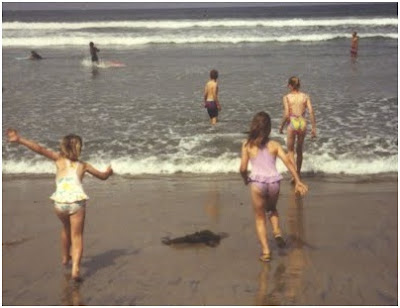[My friend Emily Wierenga blogs at Imperfect Prose and at Chasing Silhouettes. Today she’s sharing about her forthcoming book, Chasing Silhouettes: How to Help a Loved One Battling an Eating Disorder.]
The Skinny on the Book by E. Wierenga
The nurses murmured to each other under fluorescent lighting as I lay shivering on the metal hospital bed, cold. Later, I would learn that they had marveled at my hypothermic, sixty-pound sack of bones, reasoning, “She should be dead.” I was a breach of science; a modern-day miracle. Yet in that profound moment, all I
could think was: “Why can’t I lose any more weight?”
After four years of slow and steady starvation, I had finally quit eating altogether.
It started when I began to squint my eyes for the camera. I wanted to create laughter lines in a laughter-less face. Then, I began sucking in my cheeks. I liked how it made me look thinner. Model-like. I was nine years old.
The next four years were a blur. Anorexia starved my mind, but I’ll always remember the darkness. Days smudged with counting calories and streaming tears. Days filled with frowns, fierce yells and fists pounding against my father’s chest…
Dad loved us by doing his job so well he put ministry before family. He’d kiss us on the cheeks early in the morning and lead Bible devotions and sigh when we asked him questions on Sermon-Writing day. I hated Sermon-Writing day.
I got baptized at age eight because Dad said I should and I wanted to please him the same way I wanted to please God. I associated God with my father—a distant, unemotional man who said he loved me yet was too busy to show it.
One year later, I realized that even though I’d gotten baptized, Dad still didn’t ask me how I was doing, not really, and so God still didn’t care. Not really.
Food was dished onto our plates at every meal; again, I had no choice but to finish it. This inability to make my own decisions killed my independent spirit. Mum meant well; as a nutritionist, she served healthy but plentiful portions. As a result, we became healthy but plentiful children.
Meanwhile, a woman I’d become very close to, ‘Grandma Ermenie,’ passed away. And life became even more uncontrollable, and disappointment, more certain…
It’s a scary place to be in, this place where you have no one, so you have to become bigger than life itself, in order to carry yourself through the pain. A nine-year-old isn’t very big. And all I wanted was to be small. Because the world told me that thin was beauty. And maybe if I was beautiful, Dad would want to spend time with me.
I didn’t know about anorexia nervosa. We weren’t allowed to play with Barbie dolls or take dance lessons or look at fashion magazines or talk about our bodies in any way other than holy, so I didn’t know anything except that Mum changed in the closet when Dad was in the room, and made us cover our skin head to foot.
A kind of shame came with this not talking about bodies and beauty became something forbidden. And I wanted it more than anything. So I stopped eating.
It was a slow-stop, one that began with saying “No,” and the “No” felt good. I refused dessert. I refused the meals Mum dished up for me. I refused the jam on my bread and then the margarine and then the bread itself…
At night, I dreamt of food. Mum would find me, hunting for imaginary chocolates in my bed. I wanted her to hug me and make the fear go away, but was worried that if I did, my guard would be let down and I’d eat real chocolates, so I stopped hugging her for two years.
My legs were getting thin, and that was what mattered, but I dreamt about her arms, and woke up hugging myself.
I slipped from a state of not being hungry to a state of choosing to be hungry. I liked how my pants sagged, how my shirt became loose, my face slim, and my eyes, big. And at some point, I became a different person, intent on being skinny no matter the cost.
***
This is how it starts.








Recent Comments